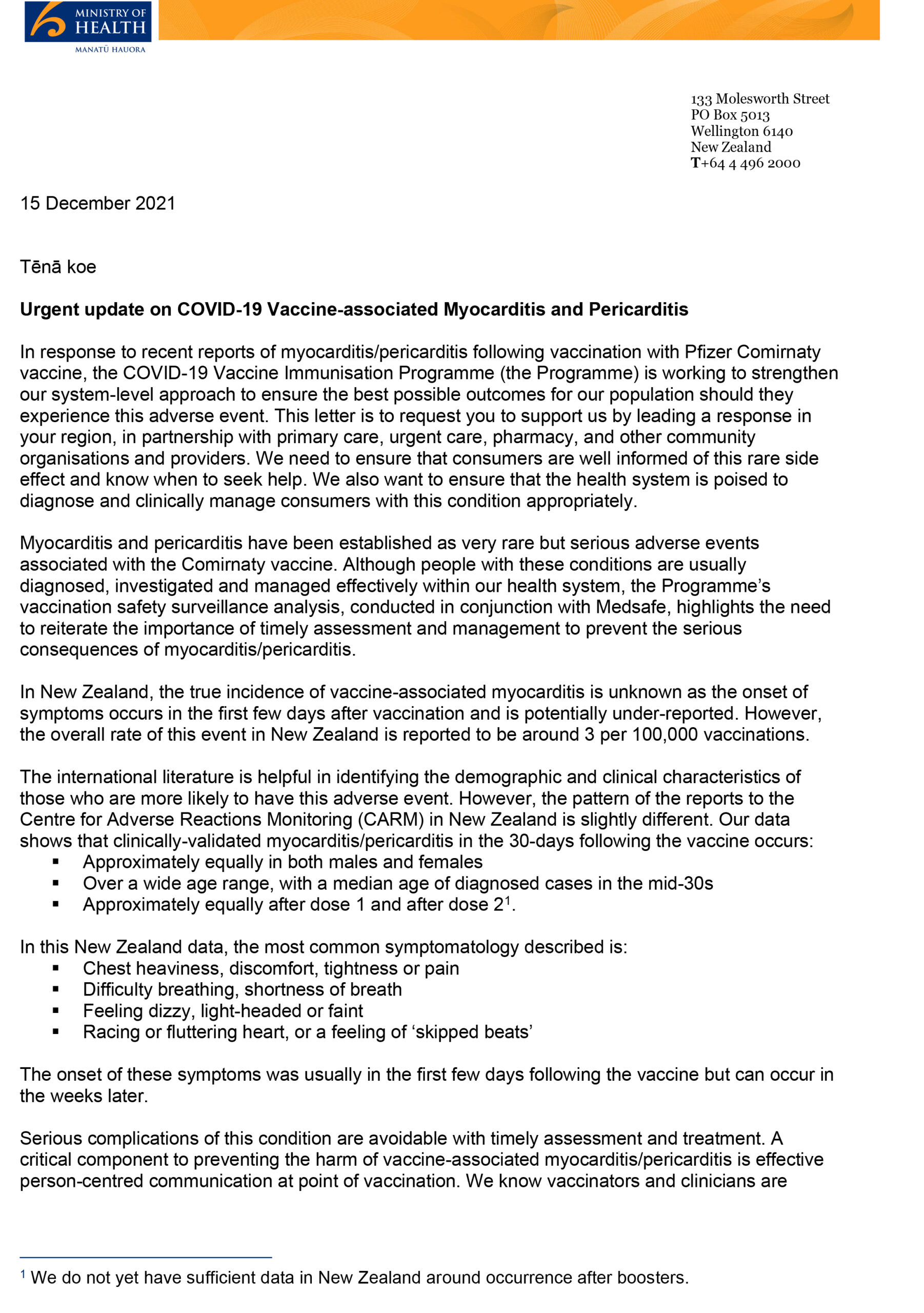Dr Anonz
Dr Anonz is an NZ-registered medical doctor
On Wednesday, the New Zealand Ministry of Health issued an urgent update to doctors regarding COVID-19 vaccine-associated myocarditis (inflammation of the heart muscle) and pericarditis (inflammation of the sac containing the heart). In the letter, signed by Dr Ashley Bloomfield and others, clinicians are reminded of the symptoms of these conditions and the need for timely referral and treatment.
A safety signal regarding a possible causative relationship between the Pfizer vaccine and myo-/pericarditis was noted in Israel as early as April 2021 and since reflected across the world through case reports and the various voluntary adverse-event reporting systems (including VAERS in the USA and MHRA in the UK). If the ministry had been closely monitoring other countries’ vaccination programmes, particularly those extensively using the Pfizer vaccine, this association would have come as no surprise.
Besides a brief passing reference to “the international literature”, the MOH letter makes specific mention only of data derived from the NZ Centre for Adverse Reactions Monitoring (CARM), also a voluntary reporting system (with a much smaller data set than international comparators). They acknowledge, “in New Zealand, the true incidence of vaccine-associated myocarditis is unknown as the onset of symptoms occurs in the first few days after vaccination and is potentially under-reported”, and then quote an overall reported incidence of three cases per 100,000 vaccinations. This blanket statement of incidence across the population, apart from being a very low estimate by their own admission, is also substantially misleading.
As with the continued lack of emphasis on the undeniable truth that COVID-19 disease is highly age-stratified, with almost zero risk to children and very low risk to well adults under 70, the incidence of post-vaccination inflammatory heart conditions also shows age (and sex) stratification. The peak appears to be specifically in teenage boys and is likely to be more than an order of magnitude higher than the CARM estimate (probably somewhere between one in 3,000 and one in 6,000 doses).
In general, post-vaccination myo-/pericarditis seems to mainly affect those under 30 years of age, the very demographic least at risk of severe COVID-19.
Failing to alert clinicians to the much higher incidence of post-vaccination myo-/pericarditis in younger people and continuing to characterise it as “very rare”, risks the very failure to promptly diagnose such cases that the letter purports to try and prevent.
Post-vaccination myo-/pericarditis is not rare, it carries potential serious long term consequences and needs to be balanced against the low risk of severe COVID-19 in the age group which is predominantly affected.
The irony of this letter being sent to NZ-registered doctors on the same day that Medsafe gave provisional authorisation to vaccinate five to eleven-year-olds is extreme.
The fact that the stated purpose of the letter is to “ensure the best possible outcomes for our population should they experience this adverse event”, rather than to question the requirement for the injurious agent in the first place, is inexcusable.
The letter can be viewed in full here.

